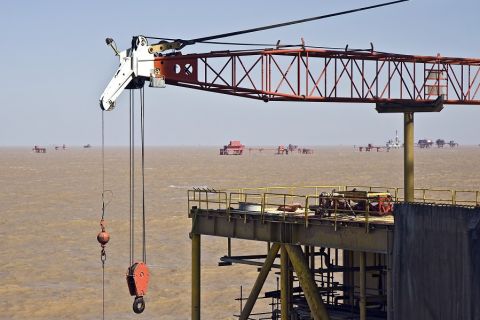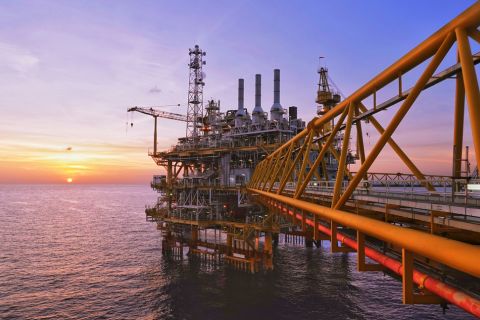?High oil and gas prices and shock at the pumps have given the energy industry an opportunity it has not had for more than 30 years.
Laredo Petroleum chief executive Randy A. Foutch may have been preaching to the choir during a recent IPAA luncheon at the Petroleum Club in Houston, but it didn’t dampen his enthusiasm.
“For the first time, we have an opportunity for a national debate on energy that will be fueled by facts and not emotion,” Foutch says. “In my opinion, for most of the last 30 years we have had an emotional energy policy and now we as an industry have a chance to hold a national debate with facts and intellect.”
The energy crisis the U.S. is facing has been fueled by bad leadership in the federal government, and the energy industry and bad decisions by the public.
With oil reaching $140 a barrel and gas at $13 per thousand cubic feet, the public is starting to ask questions, says Swift Energy chief executive Bruce Vincent, who is IPAA vice chairman.
“Attitudes are changing,” Vincent said. “As an industry, we are in a teachable moment and we have a chance to show our side of the energy issue to a public that is starting to ask a lot of questions.”
A recent poll shows 77% of Americans are now questioning the ban on drilling off the East and West coasts and the Gulf Coast of Florida. The IPAA is getting more requests for information about offshore drilling from a growing number of congressional staffs, Vincent said.
“Still, there is a lot to be done,” he added. “During a recent trip to Washington, I heard a staff member for a Democratic member of Congress say all they have to do to solve the energy crisis is get small cars and wait for the wind. That’s not a very encouraging energy policy.”
Foutch said the door has been opened in Washington, though, and energy issues are not isolated to the U.S. Several times within the past several years, Russia has shut down gas going into Eastern Europe for political issues, he noted.
“We have to realize that energy has become the weapon of choice,” Foutch said.
The energy industry has a long road in front of it. “I have been going to Washington for 30 years representing myself and I am amazed at the lack of knowledge there is by people who make decisions that affect us all.”
During a recent trip to Washington, Foutch talked with a member of Congress who told him he understands the energy issues, but he was elected by environmentalists and he has to keep that in mind.
“For the first time we have a chance to say, ‘Okay we won’t drill off Florida or the Carolinas.’ But what is the cost of this action?” he said. “For the past 30 years for the sake of a few trees or a scenic view, this country has stopped energy progress. Now, we have a chance to ask the public what was the cost.”
Foutch added that he doesn’t really care that China or India are expanding their economies.
“What I want to make sure of is that my kids and my grandkids have the same standard of living that I have,” he said. “We as an industry must be involved and begin asking questions and answering questions. This is our time; we just need to make the most of it.”
Recommended Reading
TotalEnergies Starts Production at Akpo West Offshore Nigeria
2024-02-07 - Subsea tieback expected to add 14,000 bbl/d of condensate by mid-year, and up to 4 MMcm/d of gas by 2028.
E&P Highlights: Feb. 5, 2024
2024-02-05 - Here’s a roundup of the latest E&P headlines, including an update on Enauta’s Atlanta Phase 1 project.
CNOOC’s Suizhong 36-1/Luda 5-2 Starts Production Offshore China
2024-02-05 - CNOOC plans 118 development wells in the shallow water project in the Bohai Sea — the largest secondary development and adjustment project offshore China.
US Drillers Cut Oil, Gas Rigs for First Time in Three Weeks
2024-02-02 - Baker Hughes said U.S. oil rigs held steady at 499 this week, while gas rigs fell by two to 117.
Equinor Receives Significant Discovery License from C-NLOPB
2024-02-02 - C-NLOPB estimates recoverable reserves from Equinor’s Cambriol discovery at 340 MMbbl.




